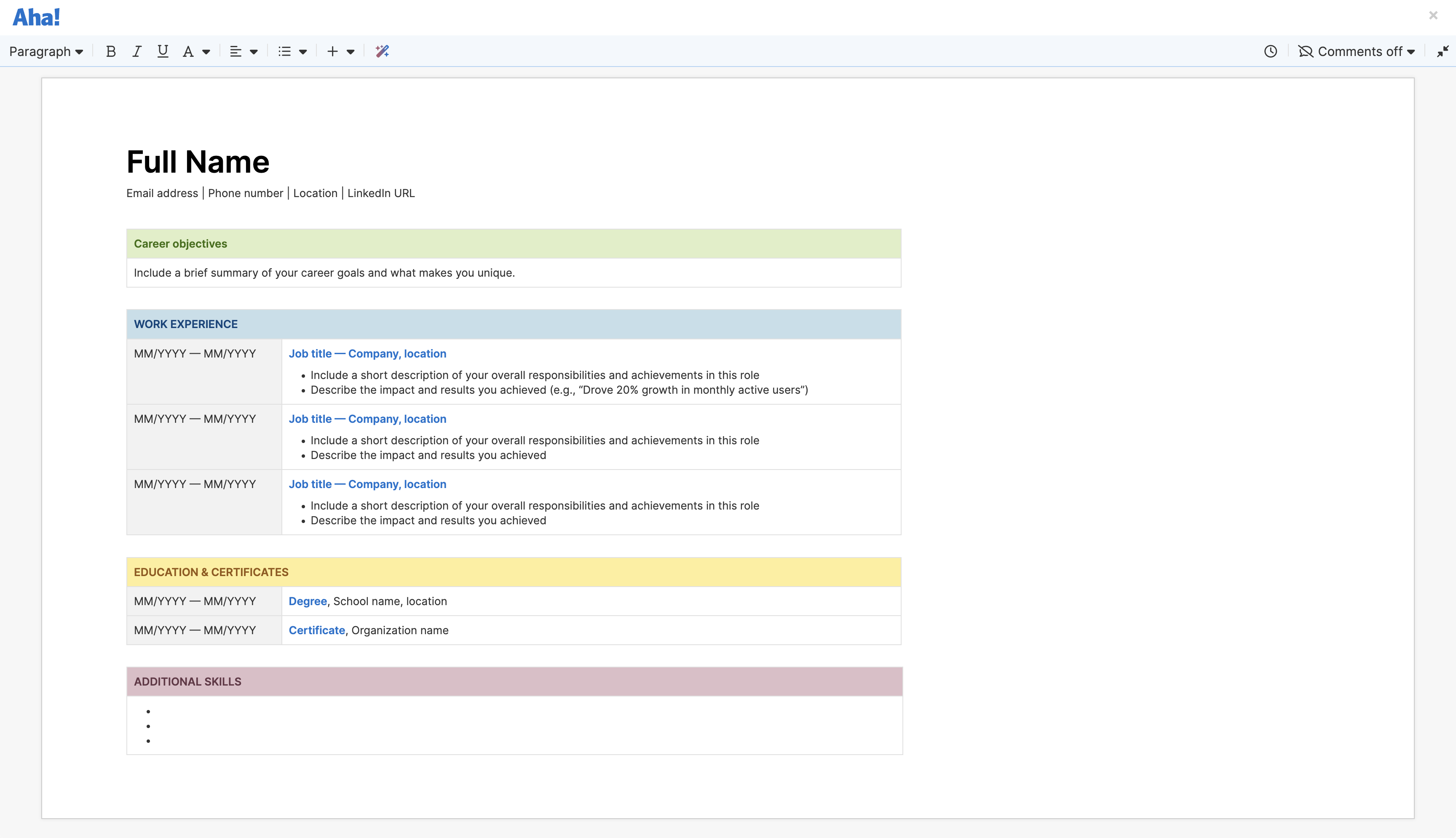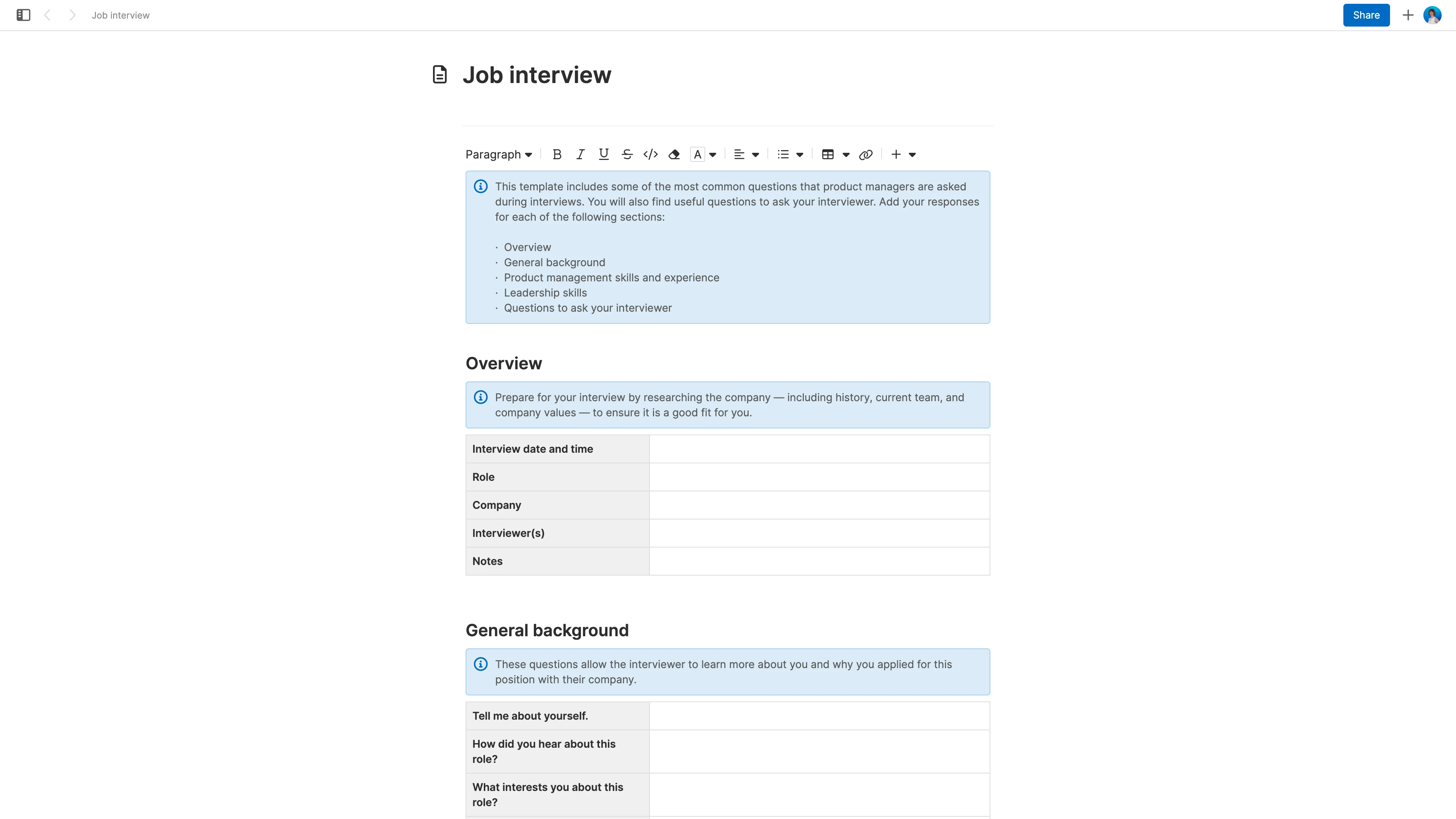The different types of product managers
Last updated: May 2024
People often say that no two product manager roles are the same. And this is true — they often differ by industry, offerings, customers, and product strategy. For someone just getting started in this career, scanning all the different job titles might feel exciting, but also overwhelming. How do you figure out the right fit for you? Here is the good news: With so many different types of product manager roles available, you have an opportunity to discover one that matches your unique skills and interests.
Product managers really, really love our software — find out why.
Whether you are just getting started professionally or looking to expand your career into product management, use this guide to gain a solid understanding of several related career paths you can take.
Use the links below to skip ahead:
Responsibilities of a product manager
Even though we are focusing on some of the different product management roles that exist today, let's ground this guide by discussing a few key areas product managers are responsible for. Their scope of work is certainly broad — as you will see later on. But in general, these are a product manager's main focal points:
Setting strategy: Articulating the business case of a given initiative or feature and then connecting it back to the product's vision and goals.
Evaluating ideas: Crowdsourcing, developing, and curating ideas that will deliver value to customers.
Prioritizing features: Determining which features will create the most value, but require the least effort.
Defining releases: Translating product strategy into planned work by defining what to build and when to launch it.
Building strategic roadmaps: Helping cross-functional teams visualize how the product will achieve business goals and initiatives.
Reporting on progress: Developing a complete view of the team's progress toward goals to understand how a product is performing.
You can learn more about the core responsibilities above in this guide.
Types of product managers
Product management positions are as diverse as the solutions they help craft. Maybe you want to tap into startup energy, double down on user experience, or explore AI deeply. These are all possible careers for a product manager today. And as technology evolves, new roles and responsibilities are emerging to support organizations in differentiated (and exciting) ways
As you explore, keep in mind that the roles within a product management function will depend on a company's size and type. Generally speaking, the larger the company and its product portfolio, the more product builders and specific skill sets it might require. For example, a large enterprise could have product managers focused on the entire product lifecycle, growth product managers working closely with internal leaders, and technical product managers collaborating with the engineering team.
The titles can differ across industries, too. Some organizations use job titles such as “offering manager” or “solutions manager” to describe roles that include product management work. And at smaller companies, a product management role might include other functions, like project and program management.
The table below is not exhaustive, but it summarizes some of the most common product manager roles — and a few emerging roles as well. Note that this is not a hierarchical list, meaning you will not see leadership positions such as Chief Product Officer (CPO), VP of product, senior/principal product manager, and the like. Rather, we are exploring different areas within this career.
Job title | Description |
Product manager |
|
Product owner |
|
Product operations manager |
|
Growth product manager |
|
Technical product manager |
|
Platform product manager |
|
UX (user experience) product manager |
|
Enterprise product manager |
|
Internal product manager |
|
Startup product manager |
|
Function-specific product managers |
|
Related:
How to choose a product manager role
It is common that product managers come from positions in other departments — such as marketing, sales, engineering, and project management. Often, what differentiates you as a product manager will stem from relevant experiences in previous roles. For example, an engineer who switches to a technical product manager role brings a deep understanding of the product development process. That past experience helps them communicate effectively with the development team and write clear product requirements.
Just take a look at our Product All-Star series. You will find that the product experts featured all entered the space differently. Many came from a technical background like software development or engineering. Others got their start in marketing, business analytics, or project management. Eco-tourism and world arts and culture even make the list. The biggest commonality among everyone? A deep curiosity about the businesses they work for, their products, and their customers.
And though each product manager role is different, they all come down to promoting a clear understanding of your organization's goals and responsibilities so product teams can stay aligned on creating value. The key is to familiarize yourself with the skills you need to succeed in the specialization of your choice — and to focus on incrementally improving.
Templates to prepare for a product manager role
If you are pursuing a certain type of product manager role, it helps to tailor your resume and job search to match it. That way, you can be prepared to share why your interests and experiences are relevant during interviews. Use the templates in Aha! software below to jumpstart your job search and interview preparation. They are easy to customize and duplicate for any type of product management role you might be getting ready for.
Product manager resume template
Make sure your application stands out by telling a compelling story. This starts with your resume. Our product manager resume template walks you through how to craft a strong, organized resume that helps recruiters quickly understand your unique skill set.

Job interview template
You have landed the interview. Now, it is time to get prepared. Use this job interview template to study the most common questions asked during a behavioral-style interview, such as your background, experience, and cross-functional leadership skills. The included questions are completely customizable. Do your homework and be sure to add questions that are relevant to the industry, product, and type of product manager role you are preparing for.
